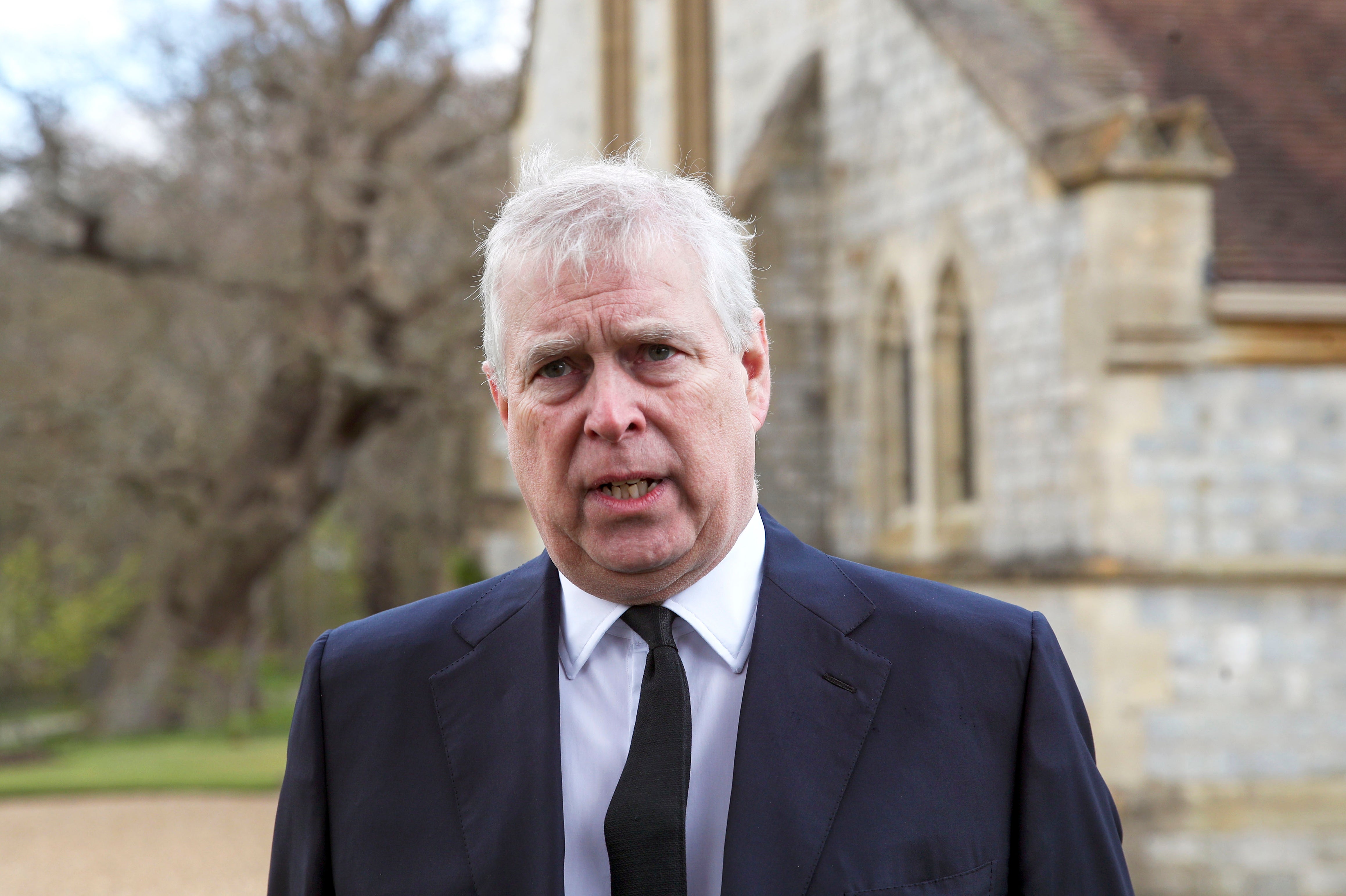The Met’s decision not to investigate the Prince Andrew allegations further erodes women’s trust in the police
What hope is there for our confidence in the justice system if Scotland Yard won’t look thoroughly into each and every claim?


Your support helps us to tell the story
From reproductive rights to climate change to Big Tech, The Independent is on the ground when the story is developing. Whether it's investigating the financials of Elon Musk's pro-Trump PAC or producing our latest documentary, 'The A Word', which shines a light on the American women fighting for reproductive rights, we know how important it is to parse out the facts from the messaging.
At such a critical moment in US history, we need reporters on the ground. Your donation allows us to keep sending journalists to speak to both sides of the story.
The Independent is trusted by Americans across the entire political spectrum. And unlike many other quality news outlets, we choose not to lock Americans out of our reporting and analysis with paywalls. We believe quality journalism should be available to everyone, paid for by those who can afford it.
Your support makes all the difference.The Met has dropped its investigation into sex allegations against Prince Andrew, according to reports – but putting his individual case aside (the Duke of York strongly denies any wrongdoing), there’s a wider issue at stake here that risks being seriously undermined: women’s confidence, yet again, in the police force.
It has been reported that Scotland Yard spoke with Prince Andrew’s accuser, Virginia Giuffre, and decided not to take any further action – though he still faces a civil suit in the US.
Giuffre claims Prince Andrew raped her in 2001 – when she was 17 – at the London home of socialite Ghislaine Maxwell, after she was trafficked by the late paedophile Jeffrey Epstein. She has previously said she was forced to have sex with Prince Andrew several times – both in Epstein’s New York mansion and on his private island in the Caribbean.
Both the Duke of York and Maxwell strongly deny the allegations, and the Met has now reportedly dropped the investigation entirely. But what hope is there for women’s confidence in the judicial process if Scotland Yard won’t look thoroughly into each and every claim?
It’s already a time of turbulent upheaval for the Met. Public trust in the police force – and its commissioner, Cressida Dick – is at an all-time low in the wake of Sarah Everard’s tragic death at the hands of serving officer, Wayne Couzens. This is not helped by the fact that the Met issued bizarre advice telling women to “shout or wave a bus down” if they don’t trust a male officer.
Couzens was sentenced last month to a whole life prison term, after it was revealed how he used his police ID to handcuff and arrest Everard as part of a fake Covid patrol, before raping and murdering her. Shocking revelations about his conduct – such as the fact that he was reportedly nicknamed “the rapist” by fellow officers, and also had a reputation in terms of “drug abuse, extreme pornography and other offences of this kind”, according to the chief inspector of constabulary Sir Tom Winsor – have proved stunning and sobering.
Winsor recently told BBC Radio 4’s the World at One that the Independent Office for Police Conduct (IOPC) would now be investigating what other officers had known about Couzens, adding that the force has a “culture of protection” – a claim that has also been backed up by former Nottingham chief constable Sue Fish, who has claimed that sex on duty “was seen as a perk of the job” by some serving police officers.
Fish said she felt she could not report being sexually assaulted by a senior officer when she was a junior, in case she would not be believed, and that her male colleagues made comments about her body. She also summed up public sentiment by saying that Couzens’s crimes have “shattered” women’s trust in the police, as the force comes under mounting pressure to explain how it will prevent violence against women and regain their trust.
This latest update on Prince Andrew’s case, the fact that it will now, reportedly, not be investigated at all, only cements that lack of trust. Not because he did it, but because any claim made by any victim deserves to be taken seriously.
Never have women felt so unsafe – or had to fight so hard to be believed. Prosecution data for rape in the UK was published by the Crown Prosecution Service (CPS) as recently as July, covering the first full year of the coronavirus pandemic, and the results aren’t good.
The statistics, which run from 1 April 2020 to 31 March 2021, showed that the CPS caseload was 50 per cent higher than pre-pandemic levels at 165,157 – meaning that rape charges have risen by almost five per cent over the year. But there were still 330 fewer convictions due to the impact of court closures during the first lockdown – and this skew is nothing new.
Over the past five years, cases reported to police – those that were initially recorded as rape – have risen sharply; yet the number of cases actually making it to court (and on to prosecution) has more than halved. In fact, only 1.6 per cent of rapes recorded by the police are currently prosecuted in England and Wales – the lowest proportion for any crime, leading to a joint apology from the home secretary, justice secretary and attorney general, who said they were “deeply ashamed”.
“Victims of rape are being failed,” the joint statement read in June. “Thousands of victims have gone without justice. But this isn’t just about numbers – every instance involves a real person who has suffered a truly terrible crime.”
News that Scotland Yard is dropping its investigation into such a high-profile case in many ways feels like the final nail in the coffin for women. We deserve to be taken seriously. We deserve for our claims to be thoroughly and carefully combed over. We deserve, where there is grounds for prosecution, for prosecutions to be made. Otherwise we’re no safer than we would be standing at the side of the road, trying to flag down a passing bus.